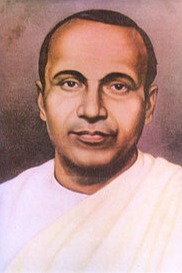
Personal info
Known for
Ultimate Talent
Gender
Male
Birthday
30 January
Location
Uttar Pradesh, India
Edit pageJaishankar Prasad
Biography
Jaishankar Prasad (1889–1937) was one of the foremost poets, playwrights, and novelists of modern Hindi literature, regarded as a leading figure of the Chhayavaad (neo-romantic) movement. His works combined romanticism, nationalism, and spiritual introspection, laying the foundation for modern Hindi literary expression.
🌿 Early Life and Education
Jaishankar Prasad was born on January 30, 1889, in Kasara, Bihar, into a family of scholars. He showed an early interest in literature, philosophy, and classical Indian texts, and pursued higher education in Hindi and Sanskrit. His literary sensibilities were shaped by exposure to Indian epics, mythology, and nationalist ideas.
✍️ Literary Career
Prasad was a multifaceted writer, producing poetry, plays, novels, and essays. He is best remembered for his romantic poetry and historical plays, which combined lyrical beauty with intellectual depth.
Major Works:
Poetry Collections:
Kamayani (1936) — an epic poem exploring human emotions, philosophy, and mythology, considered his magnum opus
Mrigtrishna (1920)
Ansu (1932)
Plays:
Skanda Gupta (1929)
Chandragupta (1931)
Rani Karnavati (1932)
Novels and Essays:
Chitralekha (1934) — a philosophical novel exploring desire, morality, and human nature
🌺 Themes and Style
Jaishankar Prasad’s works reflect:
Romanticism and Chhayavaad ideals — focus on emotion, nature, and personal expression
Historical and nationalist consciousness — highlighting Indian heroism and moral values
Spiritual and philosophical exploration — examining human nature, destiny, and ethical dilemmas
Lyrical and symbolic language — rich imagery and poetic rhythm
His writing is characterized by elegant diction, emotional intensity, and profound reflections on life and history.
🕊️ Legacy
Jaishankar Prasad passed away on November 15, 1937, but his contributions to Hindi literature remain immense and enduring. Kamayani is considered a landmark in Hindi poetry, and his plays and novels continue to be studied and performed, shaping modern Hindi literary culture.
He is remembered as a visionary poet and dramatist, whose works bridged classical Indian thought with modern literary expression, inspiring generations of writers and readers alike.